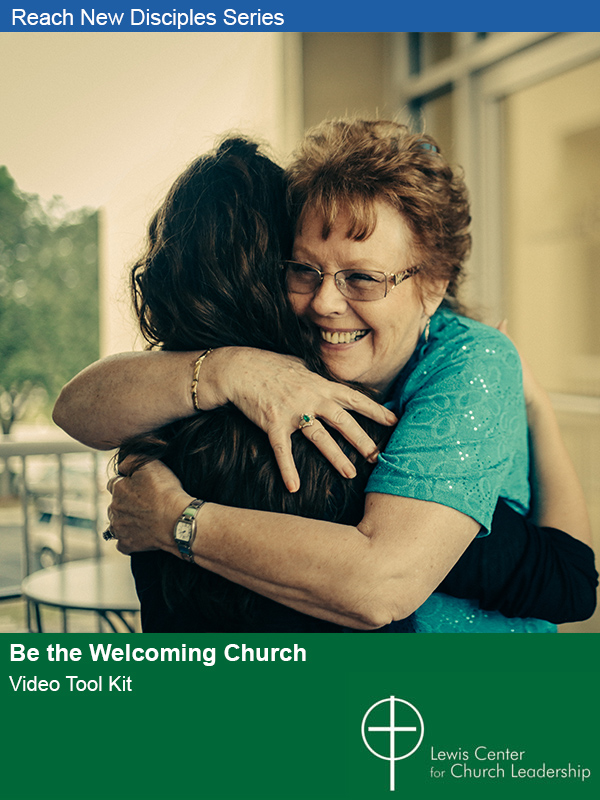The Fuller Youth Institute’s “Faith Beyond Youth Group” research initiative explored character as the vehicle for both faith longevity and faith vibrancy throughout the week. Their research yielded five compass points to guide the formation of character in young people — cultivating trust, modeling growth, teaching for transformation, practicing together, and making meaning.
The findings from the Faith Beyond Youth Group research are depicted as a compass, not as a checklist or linear process, because a compass is a navigational tool, a way to orient ourselves in a particular direction using a map in order to reach a particular destination. When we turn, the compass shifts and we explore different terrain. While the order of the compass points reflects the most common chronological order we saw in churches, it is by no means the only order.
1. Cultivate trust.
According to our interviews, youth ministries are already highly relational. This finding was so salient in our research that the first point of our Faith Beyond Youth Group Compass, cultivate trust, asks how youth ministries can best leverage the relational strengths they already possess to develop character-forming identity, belonging, and purpose. Our relationships as leaders can build faith beyond youth group when they are permeated with trust and punctuated with empathy and authenticity.
2. Model growth.
Modeling is showing others who we are every day. Teenagers wonder, Are you for real? Are you the same outside church as you are inside? They’re watching for what our everyday actions reveal. Do we model growth? When we live consistently, we let them know they can trust us with the parts of themselves they might be hesitant to bring to church, including their doubts, questions, mistakes, and hurts. As youth leaders, we can model consistency and integrity as we live everyday faith imperfectly, both within and beyond the church, so teenagers can follow us as we follow Christ (1 Cor. 11:1).
3. Teach for transformation.
Youth leaders value teaching. We believe it is imperative to faith and character formation. Yet so often our teaching has been focused on one-way information transmission, which seldom forms actual character. Throughout our Faith Beyond Youth Group research, we were amazed at the innovative ways youth leaders formed character by teaching for transformation — building on the work of others, telling stories, asking questions, and commissioning others with authority, which are all strategies Jesus used with his followers to form their character. When character is taught in a way that transforms young people’s identities, they leave with faith beyond youth group.
4. Practice together.
Everyday life is the training ground for character formation. Young people are sent out to test the virtues they’ve learned in relationships through modeling and teaching in the church and youth ministry. For example, they’ve “caught” and been “taught” the virtue of forgiveness in community, and now they get to apply that wisdom to everyday life within their families, relationships, schools, and communities. As we practice together, we walk with young people through a cycle of action and reflection, helping them try on service, leadership, hospitality, and holistic practices that move faith out of their heads and into their hands and feet. Through the struggles and victories of everyday life, young people develop character and competence and eventually begin to own their faith.
5. Make meaning.
When we create environments where teenagers can reflect on what happens in their lives, we help them understand who they are and who they can be in Jesus. In the midst of once-a-year and week-to-week experiences, teenagers wonder: What happened? What does it mean? Where is God? What now? Faithful leaders guide students through these cycles of action and reflection; we make meaning by tapping into the power of naming experiences, evaluating our actions, and connecting to the larger biblical narrative before we go out and try again.
The topography of character-forming discipleship is as diverse and layered as today’s young people. When it comes to character formation, there is no one-size-fits-all solution or easy equation for it, no matter how much we might like there to be one. Instead, the Faith Beyond Youth Group Compass will point you in the right direction to form character in teenagers while also giving room to contextualize the five points for your specific ministry setting.
 Excerpted from Faith Beyond Youth Group: 5 Ways to Form Character and Cultivate Lifelong Discipleship by Kara Powell, Jen Bradbury, and Brad M. Griffin, published by Baker Books, a division of Baker Publishing Group, 2023. BakerPublishingGroup.com. Used by permission. Available at Baker Publishing Group, Cokesbury, and Amazon.
Excerpted from Faith Beyond Youth Group: 5 Ways to Form Character and Cultivate Lifelong Discipleship by Kara Powell, Jen Bradbury, and Brad M. Griffin, published by Baker Books, a division of Baker Publishing Group, 2023. BakerPublishingGroup.com. Used by permission. Available at Baker Publishing Group, Cokesbury, and Amazon.
Related Resources
- 10 Qualities Your Church Doesn’t Need to Grow Young by Kara Powell, Brad Griffin, and Jake Mulder
- The Changing Contours of Youth Ministry featuring Deech Kirk — Leading Ideas Talks podcast episode | Podcast video | In-depth interview
- Resurrecting Youth Ministry featuring Jen Bradbury — Leading Ideas Talks podcast episode | Podcast transcript
- 50 Ways to Strengthen Ministry with Youth, a free Lewis Center resource







